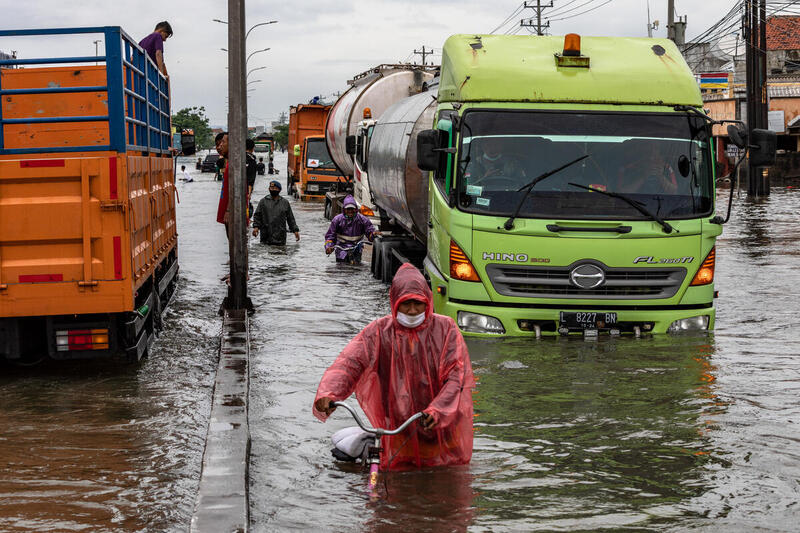
The Intergovernmental Panel on Climate Change: Why a new climate report?
Climate risk: why a reassessment of the IPCC is necessary
The climate crisis we face today is not what it was 5 or 10 years ago, let alone 32 years ago, when the Intergovernmental Panel on Climate Change issued its first-ever comprehensive assessment report to governments. from the whole world. According to the World Meteorological Organization, we are now officially in uncharted territory when it comes to climate change. The climate crisis continues to evolve. That is why it is imperative that the global scientific community come together and paint a complete picture of what lies ahead and how the climate emergency intersects with other crises, so that we can make informed choices during the crucial years ahead.
What will the new IPCC report tell us
On February 28, the second part of the Sixth Assessment Report of the Intergovernmental Panel on Climate Change is scheduled to be published.. Here are the main questions to be answered:
- What is the impact of global warming on humanity and other life on Earth?
- How will climate impacts and risks increase with increasing warming, and how do choices in terms of development pathways affect these risks?
- How and to what extent can these impacts be adapted and risks reduced?
- In which areas are the limits of adaptation being exceeded, resulting in losses and damages?
- What are the causes of vulnerabilities to climate impacts and risks, and how can these vulnerabilities be reduced and resilience built?
- What is the status of coastal communities, towns and coastal facilities?
- What is the role of social justice and equity in climate change resilience?
- What solutions can better prepare our societies for global warming, sea-level rise, and other changes we can no longer avoid?
- New IPCC report, what next?
The February 28 report will cover many topics, but not pathways to reducing greenhouse gas emissions or worsening global warming. A report for this coming April will be devoted to the third part of the IPCC assessment, as well as to the compilation of the sixth assessment report to be released in October.
These subsequent IPCC reports will be essential to discussions on the measures to be adopted in the face of the urgent problems of adaptation and loss and damage.. It will provide a framework for preparatory speeches for the International Climate Conference, COP27which will be held in Egypt in November 2022. Countries will then have to commit to reviewing their national targets to limit temperature rise to 1.5 degrees Celsius, according to the Paris Agreement.
The scholars should not only be listened to, but also listened to
Dont look up: All too often, scientists struggle to make themselves heard as they warn of a growing urgency for action. The next decade is crucial to the future of humanity and biodiversity. It is up to us, civil society, to mobilize so that action supports science. We now offer several procedures:
We are also counting on you on Saturday 12th March as The atmosphere of the marches It will be organized throughout France. The next day, Sunday, March 13th, century affairs organizations are organizing a “Debate of the Century” with Jean Massier on Twitch. do not miss it.
Our teams are 100% mobilized on threats to the environment, working specifically to ensure that the environment in general and the climate emergency in particular have a fair place in the democratic debates taking place at this time for the presidential election. Your support is crucial:

“Organizer. Social media geek. General communicator. Bacon scholar. Proud pop culture trailblazer.”
